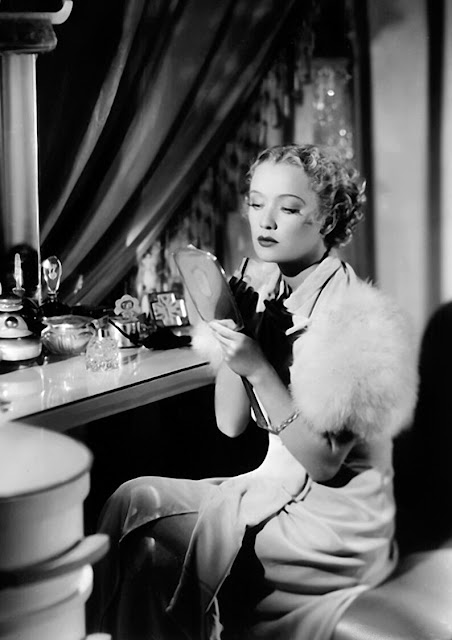Diane Keaton: A Box of Perpetual Gifts
This material is derived from a variety of sources: There are notes here that were on Tenn's bed in the Royal Orleans Hotel; there are comments he made to me during our time together; there are paragraphs he was crafting for a profile he wanted to write about the women who were helping him get to work and to recognize what matters. All of this material found its way into my journals, and I present them as they were written--jagged and happy and fervent.
I rarely wish to know how an actress arrives at her performance. I love the effect the work
has on me; I love the effect the work has on the words of the lucky writer who enjoyed the
employment--and I suggest you truly study the meaning of that word--of a dedicated
actress. There is an exhumation of sorts that begins when artists begin to detail their
process, their journey, their means of communication. A rare exception is Diane Keaton,
because her journey seems to me to be so layered, so intense in its desire for discovery,
that I feel it would help me--help any artist--in the pursuit of truth and clarity.
Her performance recently in Shoot the Moon meant a great deal to me, altered me. There
is some extraordinary storage being unloaded in that performance. Suppressed, shared,
stored again. A Joseph Cornell of compartmentalized emotion. In this box, pain; in that
box, surcease; in another box, rage; in two or more boxes, fear, not yet fully understood.
All together: a work of art. I never saw my mother in a bathtub, smoking, in what is often
desultorily called our real life, but I did in that film. Diane made me think of my mother,
dreaming, afraid, seeking to escape, through memory.
Fantasy clearly plays a large role in her life: She craves color and shape and design and
order: It is in her performances, not merely her wardrobe. The body, we are told, merely
reflects the thoughts housed within it, and Keaton would appear to be violently intelligent,
fearful of boredom or rest or waste. She is generous with her talent and her intelligence
and her curiosity, but niggardly in the presentation of it, leading to focused, sharp
performances. There is no waste, no fat, no room for the mistakes that rarely occur when
she works.
I sense that she does not always trust herself, so she works and thinks intensely, except
when she works with Woody Allen, with whom she is in the hands of a comrade and an
ardent appreciator of her gifts.
Marvelously loony in Sleeper.
Fragile and unafraid of appearing hunched and needy in Annie Hall, while always
understanding the humor in each scene that called for it. Her character is never sure of her
placement in the world, and Keaton somehow physically floats above the sidewalks, the
cramped rooms, the suffocating relationship. Watch it again and look for the layers she
presents in what might appear to be a simple film.
Angry, parched, depressed in Interiors. She smokes in such a way that you pity the
cigarette: she crushes the life of that item as she does her life, the life of her friends, the
words of the poems she laboriously and joylessly writes. Keaton has drained herself of
color and warmth and vivacity in this role, and there is merely the shadow of a person
haunting the frames in which she appears. Malignant.
Her greatest performance--and one of the greatest I've seen in many years--is in Looking for Mr. Goodbar. Here is an abused woman, hungry for affection and affirmation, and seeking it in powders and herbs of stimulation and surcease, in bodily fluids and forced, venal connections. I know this woman, I know this condition, and her portrayal of it is merciless, unpleasant, true, overwhelming. One does not always want to be in the presence of her character, not only because we know of her ultimate ending, of the gifts that never come, of the satisfaction that never sustains, but because she has become so briny after years of soaking in her resentments and hoisting her inventory of pain.
She lives and dies in a virtual bowel movement. [This is a reference to cinematographer William Fraker's work in the film: Keaton's character lives in an apartment whose walls appear to be smeared with excrement.] The camera freezes on her face in death, at which point she finally finds release and comfort, free from all that has haunted her.
She can be maternal and malevolent--at the same time--and this is extraordinary.
I dream of her Alma, hungry and sweet and growing briny before our eyes. I wonder if she would age and agree to be Amanda or one of the sad, stumped women of Slapstick Tragedy.
I love her and I follow her, and I think of her, lost in thought, deep in danger, in that film, in that dark apartment, headed for Hell. Study her in that film and characters will arrive.
A box of perpetual gifts.






Do you really think it's all that calculated? Keaton is a force of nature, she just IS, and when given freedom will just soar. And her greatest performance was down at The Circle In The Square in Israel's PRIMARY ENGLISH CLASS. Diane is a brilliant, in the moment stage actor.
ReplyDelete